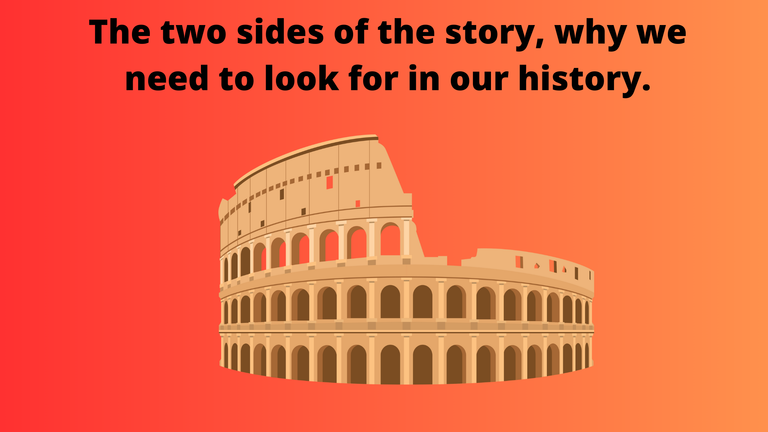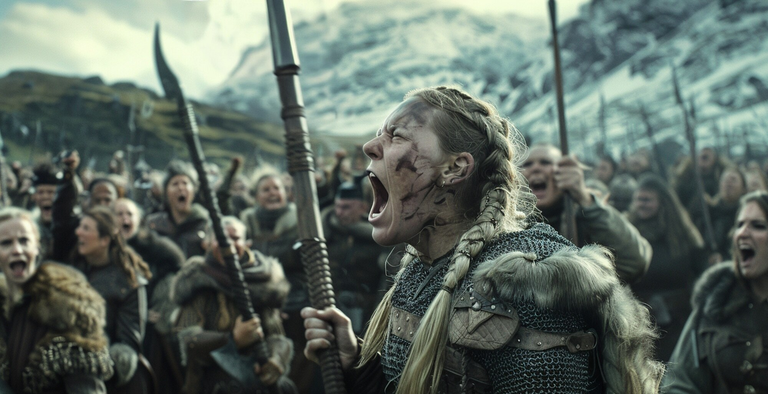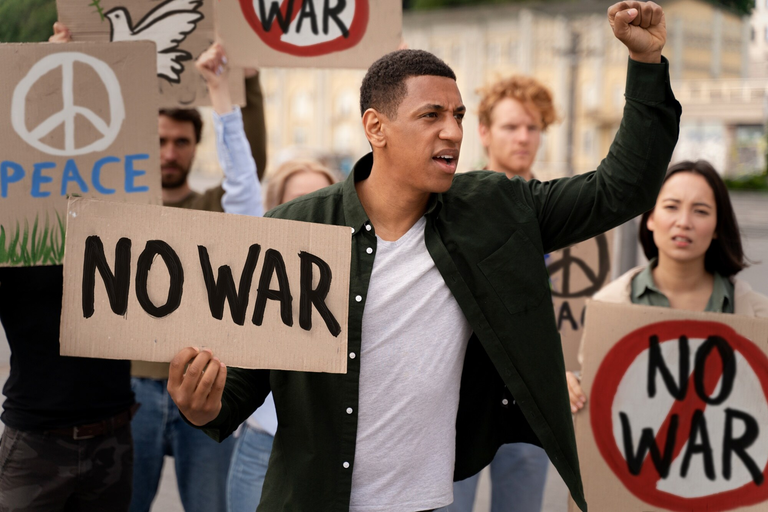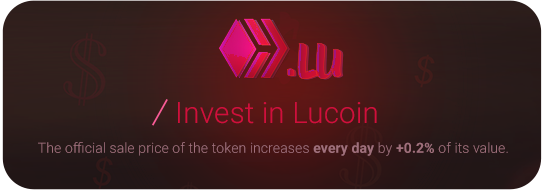
Last Friday there was a birthday lunch at work for one of the company's employees. I was chatting with a co-worker who was a bit anxious about the US election results. She was concerned about some gay friends who live in the US. The talk went in the direction where we talked about how every news we find around is biased, such as CBC, BBC, Al Jazeera, etc. And then the talk landed on another topic: Our world history education during school days. That was an interesting point because she had her basic education here in Canada and I had mine in Brazil.

My co-worker was complaining that just a while ago she noticed how her history education at school was so bad since it focused a lot on Canada's history and maybe went a bit more local, knowing about the US history and North America in general. Her partner is Russian and it looks like that triggered some curiosity to read about the history around the world, She was telling me that she went to read books about Asian countries' history a bit to understand better what happened there, including Korea and Japan. I complain a lot about my general school experience, but I am glad that my school gave me some basis and curiosity about the history of the world. And I had a teacher who triggered a curiosity about one part of history, the middle age started in Europe.
The focus of that teacher was to teach us that we learn history from a specific point of view sometimes and we need always to be open-minded and check. Usually, we learn about the barbarian attacks. Why do we call them barbarian? The Roman Empire described them as different and rougher cultures or savages. They were northern Europeans, or Germanic people (Vikings, Visigoths, etc) that invaded the Rome empire, but they had their own amazing culture. So the "barbarian" term is more from a Western point of view. So, when we learn one side of the story we are tempted to conclude wrongly an event. It was a war between different ways of life, but it doesn't mean that one is bad and the other is good. The Truth is somewhere between. @elderdark came to a similar conclusion comparing the fight of "who was the aviation's father".
We can take this to other recent events. In 1973 there was a Yom Kippur War or Ramadan War (depending on the point of view). In that year Egypt launched a surprise attack on Israel during the holiest day of the year for the Jews to take them unprepared, which was by coincidence the 10th day of Ramadan. Interesting that both countries sell the event as a total victory by each country. Israel won on the army side since the war ended when Israel's army was only 100 km from Cairo. But that event led to the pressure that Israel needed to give back some territory to achieve some peace. The interesting is how Egypt's president sold to their population that their army won that event, since the previous president Nasser lost another war against Israel, he didn't want to be seen as a loser as well. Nasser after losing the war lost the power and the leadership of the country, he didn't want the same. So both countries had their losses and victories in that war.
We can transfer this knowledge in the current conflicts around the world, but we see people blindly defending points of view that they heard on social media or biased news as my friend realized. If you ask basic questions for people heated by the moment about these conflicts you will hear dumb and biased sentences or most of the time "I don't know". So why give an opinion on something that you don't understand? That is the main problem! People want to choose the devil and the poor side when sometimes there is something between them. And choosing the side that they believe is the right just heats their internal ignorance. In these cases maybe it is better to stay without a formed opinion about the conflict and let it go. People don't need to give their opinion for every single conflict. If you think you do what is your opinion about the Myanmar conflict that is still active for more than 50 years?

Instead of choosing a side in conflicts after watching videos or news on the internet, it is better to read more about the history that is behind that event, using different sources not from only one side of the view. Because side A wrote its history and side B as well. Again citing @elderdark, he mentioned that in the future we will have a clearer what happened between the Ukraine and Russia conflict. I am not sure, since we will always have the history of the two sides, but it is up to us to know both. But we know that the winner history's version will be more popular.



Na sexta-feira passada, houve um almoço de aniversário no trabalho para um dos funcionários da empresa. Eu estava conversando com uma colega de trabalho que estava um pouco ansiosa sobre os resultados das eleições nos EUA. Ela estava preocupada com alguns amigos gays que moram nos EUA. A conversa foi na direção em que falamos sobre como todas as notícias que encontramos por aí são tendenciosas, como CBC, BBC, Al Jazeera, etc. E então a conversa caiu em outro tópico: Nossa educação em história mundial durante os dias de escola. Esse foi um ponto interessante porque ela teve sua educação básica aqui no Canadá e eu tive a minha no Brasil.

Minha colega de trabalho estava reclamando que há pouco tempo ela percebeu como sua educação em história na escola era tão ruim, já que focava muito na história do Canadá e talvez fosse um pouco mais local, sabendo sobre a história dos EUA e da América do Norte em geral. Seu parceiro é russo e parece que isso despertou alguma curiosidade em ler sobre a história ao redor do mundo. Ela estava me contando que foi ler livros sobre a história dos países asiáticos um pouco para entender melhor o que aconteceu lá, incluindo a Coreia e o Japão. Eu reclamo muito sobre minha experiência escolar geral, mas estou feliz que minha escola me deu alguma base e curiosidade sobre a história do mundo. E eu tive um professor que despertou minha curiosidade sobre uma parte da história, a Idade Média começou na Europa.
O foco daquele professor era nos ensinar que aprendemos história de um ponto de vista específico às vezes e precisamos sempre ter a mente aberta e verificar. Normalmente, aprendemos sobre as invasões bárbaras. Por que os chamamos de bárbaros? O Império Romano os descreveu como culturas diferentes e mais rudes ou selvagens. Eles eram europeus do norte, ou povos germânicos (vikings, visigodos, etc.) que invadiram o império romano, mas tinham sua própria cultura incrível. Então o termo "bárbaro" é mais de um ponto de vista ocidental. Então, quando aprendemos um lado da história, somos tentados a concluir erroneamente um evento. Foi uma guerra entre diferentes modos de vida, mas isso não significa que um seja ruim e o outro seja bom. A verdade está em algum lugar no meio. @elderdark chegou a uma conclusão semelhante comparando a luta de "quem era o pai da aviação".
Podemos levar isso para outros eventos recentes. Em 1973, houve uma Guerra do Yom Kippur ou Guerra do Ramadã (dependendo do ponto de vista). Naquele ano, o Egito lançou um ataque surpresa a Israel durante o dia mais sagrado do ano para os judeus para pegá-los desprevenidos, que por coincidência era o 10º dia do Ramadã. Interessante que ambos os países vendem o evento como uma vitória total de cada país. Israel venceu do lado do exército, já que a guerra terminou quando o exército israelense estava a apenas 100 km do Cairo. Mas esse evento levou à pressão de que Israel precisava devolver algum território para conseguir a paz. O interessante é como o presidente do Egito (Sadat) vendeu à população que seu exército venceu o evento, já que o presidente anterior Nasser perdeu outra guerra contra Israel, ele não queria ser visto como um perdedor também. Nasser depois de perder a guerra perdeu o poder e a liderança do país, ele não queria o mesmo. Então ambos os países tiveram suas perdas e vitórias naquela guerra.
Podemos transferir esse conhecimento nos conflitos atuais ao redor do mundo, mas vemos pessoas defendendo cegamente pontos de vista que ouviram nas mídias sociais ou notícias tendenciosas, como minha amiga percebeu. Se você fizer perguntas básicas para pessoas aquecidas pelo momento sobre esses conflitos, você ouvirá frases idiotas e tendenciosas ou, na maioria das vezes, "não sei". Então, por que dar uma opinião sobre algo que você não entende? Esse é o principal problema! As pessoas querem escolher o diabo e o lado pobre quando às vezes há algo entre elas. E escolher o lado que acreditam ser o certo apenas aquece sua ignorância interna. Nesses casos, talvez seja melhor ficar sem uma opinião formada sobre o conflito e deixá-lo ir. As pessoas não precisam dar sua opinião para cada conflito. Se você acha que precisa, qual é sua opinião sobre o conflito de Mianmar que ainda está ativo há mais de 50 anos?

Em vez de escolher um lado em conflitos depois de assistir a vídeos ou notícias na internet, é melhor ler mais sobre a história que está por trás daquele evento, usando diferentes fontes, não apenas de um lado da visão. Porque o lado A escreveu sua história e o lado B também. Novamente citando @elderdark, ele mencionou que no futuro teremos uma visão mais clara do que aconteceu entre o conflito Ucrânia e Rússia. Não tenho certeza, pois sempre teremos a história dos dois lados, mas cabe a nós conhecer os dois. Mas sabemos que a versão da história do vencedor será mais popular.

Posted Using InLeo Alpha
Fatos recentes são um problema para os historiadores hehe eu prefiro acreditar que apenas quando nos afastamos dos fatos podemos ter uma visão mais clara do que de fato aconteceu. E sim, a história é sempre contada pelos vencedores!
!DUO
You just got DUO from @crazyphantombr.
They have 1/1 DUO calls left.
Learn all about DUO here.
eita! acho q eu misturei o texto do elder com o seu ahhahaha
Eu mem entendi mas tudo bem o importante é deixar um tip !lol
lolztoken.com
Subterfudge.
Credit: reddit
$LOLZ on behalf of crazyphantombr
(2/10)
Delegate Hive Tokens to Farm $LOLZ and earn 110% Rewards. Learn more.@gwajnberg, I sent you an
deep down inside people heart... they want the world to be as clear as black and white... what is not white, is black...
So if they know which one is the good one, the other one is foul, bad, evil etc.
most conflicts happen because both sides are right, or both are wrong, nothing ultimate nor absolute in this world. I think Holy Bible and holy Quran said that, only God Almighty that is Absolute... but people want to be absolute too
so sometime I think its not about two side we need to take a look from, but it's more like we need to combat ourselves to let go ego and "absolute" in ourselves.
great reflection. Nothing is absolute like you said, the truth isn't absolute so we can't be true. Many countries suffer with the bipolar effects, where you need to choose between left and right parties, which is difficult to be an absolute supporter of either. What changes is that in different periods one has more reason and is less guilty of the country's current situation.
winners write history, it's simple as that
ww2, allied won the war, allied liberated south italy, yet in NO book at school you will read that the north african french army raped and killed thousands of man and women, no that has to stay hidden since allied liberated europe and won the war
That is another example of tagging the allies as the good guys! But they also bombed Japan correct ? :)
japan is the most famous (done just to show urss the muscles btw), but you have Dresden bombing with flames too
History has traditionally been written by the victors so it can be one sided. Information is much more available now than it used to be thanks to the internet, but it also allows people to warp the truth to their liking or convenience.
To understand today you have to understand the past, and world education free of bias would be helpful everywhere. But as we both know, bias is everywhere now and probably always has been. Wars have rarely been to help out the nation's populations, but for ego of the leaders...
yes like I said in another comment, schools are used as tools of idea propagation, and this idea is learned as the sole truth!
The problem is the truth they teach now is propaganda rather than than the real history. Politicized education is a huge problem in the US, professors want to teach what they believe rather than promote individual thought on part of the students.
it is hard to find neutral teachers/professors, they are already brainwashed somehow. I remember having a literature professor that used to be that root communist trying to spend 20% of the time criticizing the current government at that time which was more center-right. That's why I cited that history teacher that somehow he tried to be neutral everytime. We never knew if he was a more right or left person, and if we asked which Brazilian soccer team he used to cheer, he always answered that it was "Olaria". Olaria is a third-division soccer club in Rio de Janeiro that for sure he wouldn't cheer.
!hiqvote
@thebighigg, the HiQ Smart Bot has recognized your request (2/3) and will start the voting trail.
In addition, @gwajnberg gets !LOL from @hiq.redaktion.
Discord. And don't forget to vote HiQs fucking Witness! 😻For further questions, check out https://hiq-hive.com or join our
History plays an important role on human lives, to not only learn about the past but to understand who we arrive where we presently are and avoid mistakes made by those in the past.
correct! But be careful to not try to solve all the world's problems! we need to start changing our local community! What is happening in our country right now? Maybe that is the priority that people sometimes forget.
I find it really concerning when people are adamantly choosing one point before understanding the bigger picture. However,it's justified because that's the conclusion they ended up understanding or coming to.
We tend to have this very black and white reasoning as I'd like to think we're conditioned to be that way. For example, at schools we're taught about the good vs evil but rarely asked to question something in the middle. So, it's really ingrained in our education that only if we go to some form of higher learning, we'll learn about the gray side of it all.
Schools are usually the biggest tools used by governments to guide their population to a way of thinking. Thats how they massify knowledge! It is rare to find independent teachers who have the freedom to teach what they learned in a very neutral way. I was a teacher back in Brazil, not history, but I know that a teacher in Brazil could have more freedom of teaching different from a dictatorship country where if the teachers goes off the rail can be sent to jail. But even being a teacher in a democratic country you need to follow all the topics that the school and country intend for their student to learn.
I must say, you have a vast and indebt knowledge of history. I admire that yaknow
THank you! But I still have so much to learn :)
Obrigado por promover a comunidade Hive-BR em suas postagens.
Vamos seguir fortalecendo a Hive
Delegate your HP to the hive-br.voter account and earn Hive daily!
🔹 Follow our Curation Trail and don't miss voting! 🔹
Your post was manually curated by @shiftrox.@gwajnberg, I paid out 0.327 HIVE and 0.075 HBD to reward 8 comments in this discussion thread.